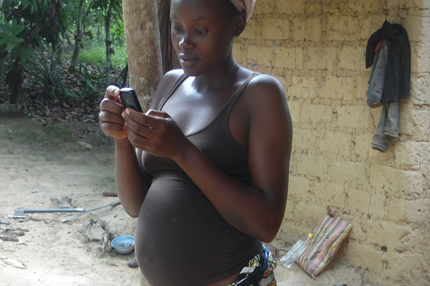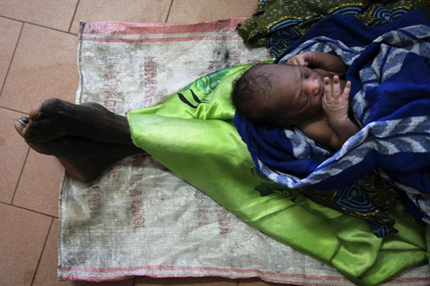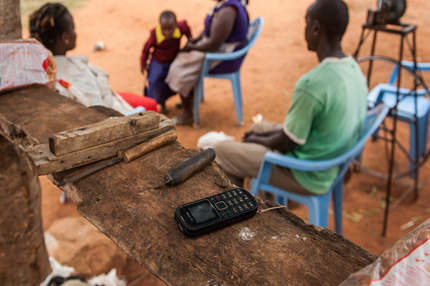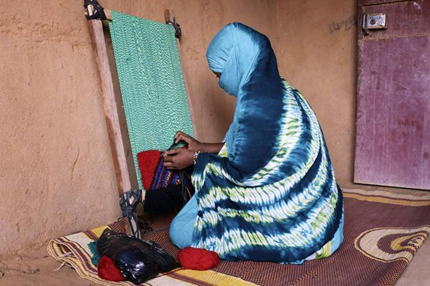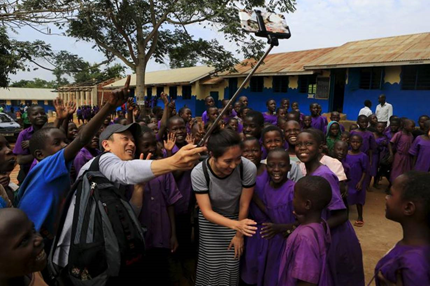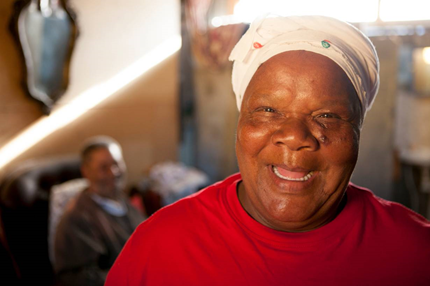Thousands of Kenyan single mothers, widows use mobile money to escape poverty
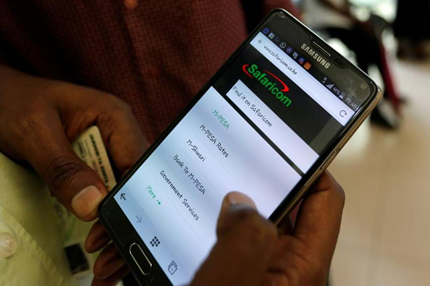
An employee assists a customer to set-up M-Pesa money transfer servive on his handset inside a mobile phone care centre operated by Kenyan's telecom operator Safaricom; in the central business district of Kenya's capital Nairobi, May 11, 2016. REUTERS/Thomas Mukoya
Impact most dramatic among those who used M-Pesa, a text message-based mobile payment system
"What we saw over six years was impressive," Tavneet Suri, associate professor of Applied Economics at the Massachusetts Institute of Technology, said in a statement.
"When M-Pesa came to an area, women shifted their occupations and their savings went up."
Almost 200,000 Kenyan households, many headed by poor, rural women, have lifted themselves out of poverty using mobile money services, experts said on Thursday, calling for the technology to be introduced in other developing countries.
The impact was most dramatic among single mothers who used M-Pesa, a text message-based mobile payment system, after switching from farming to business and retail sales, the journal Science found.
"What we saw over six years was impressive," Tavneet Suri, associate professor of Applied Economics at the Massachusetts Institute of Technology, said in a statement.
"When M-Pesa came to an area, women shifted their occupations and their savings went up."
Women's rights and gender equality, we highlights issues affecting women, girls and transgender people.


The expansion of M-Pesa, which is used in virtually every Kenyan home, lifted 194,000 households -- or two percent of households nationwide -- above the poverty line in six years, the study found.
It provides further evidence that mobile phone technology can help to bring financial services to the 80 percent of African women who do not have a bank account and bolster growth of the world's poorest continent.
M-Pesa is a cheap way of
sending, receiving and saving money via more than 110,000 local
agents, often operating out of tiny kiosks in remote parts of
Kenya.
Powering Smallholder Agriculture in Eastern and Southern Africa
This digital story depicts the way in which 2-wheel tractors can offer a solution for the decrease in farm power in Eastern and Southern Africa. Commissioned and published by: The African Conservation Tillage Network (ACT) for the “Farm Mechanization and Conservation Agriculture for Sustainable Intensification” (FACASI) project (facasi.act-africa.org). FACASI is implemented by the International Maize and Wheat Improvement Center (CIMMYT) in Ethiopia, Kenya, Tanzania and Zimbabwe.
It gives people who would otherwise be unable to access traditional financial services a simple, reliable and fast way of moving and saving money.
Mobile money's impact on the lives of poor women was one of the most exciting aspects of the study, experts said, as policymakers have struggled to understand what kinds of projects are most effective at reducing poverty.
Researchers found that the number of female-headed households living in extreme poverty fell by 22 percent within a 1 kilometre radius of an area where six new M-Pesa agents opened between 2008 and 2010.
There was no impact on male-headed households.
"Sometimes the poor, and poor women in particular, just need access to the right set of simple tools to help themselves," said Annie Duflo, executive director of Innovations for Poverty Action, a research and policy group that took part in the study.
"Hopefully these results will inform and encourage the targeted scaling of mobile money services in other countries."
Thomson Reuters Foundation


YOU MAY ALSO
LIKE:...
GREAT DEALS FOR
YOU:...

SUGGESTED FOR
YOU

SPONSORED CONTENT


YOUR SHOPPING MADE EASY
Africa's Change Makers Magazine
COMPANY
AFRICAN ACHIEVERS INTERNATIONAL Inc. is a global media and technology company including lifestyle media publisher SEMA AFRICA
online
Magazine AFRICAN ACHIEVERS MAGAZINE, digital shopping
platform PA-BEAUTY STATION.COM, event management
PRIDE OF AFRICA, awards program AfIA
AWARDS, youth and talent development, PILLARS OF
HOPE and AAK, Volunteerism
UNIVERSIDAY grassroots community support
NAD and financial support
REMITGROW and monthly subscription box AAi Must
Have. ....
More from African Achievers International
SUBSCRIBE








